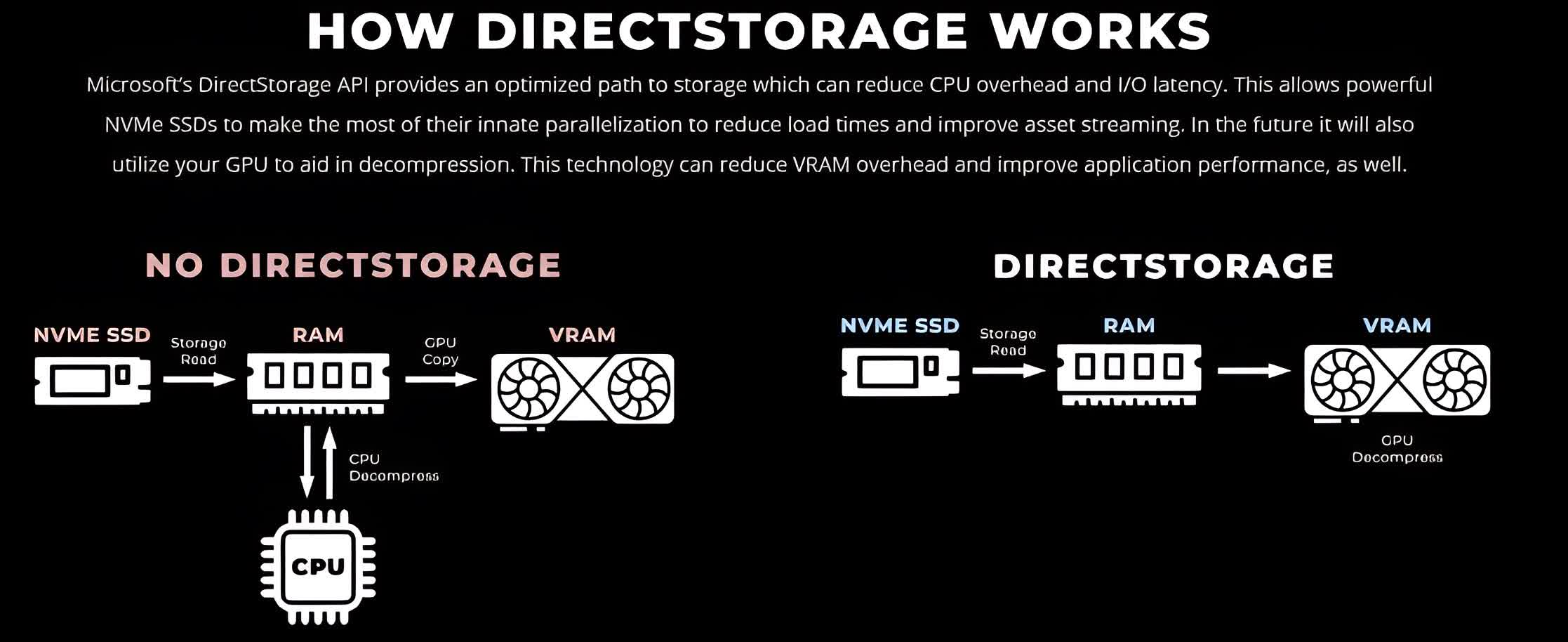Why it matters: There are hardly any games supporting DirectStorage out there, with Forspoken being the only notable example along with rumors that Diablo IV might also come with the feature when it launches later this year. Still, Microsoft is making slow and steady improvements to the technology even as developers aren't rushing to implement it.

It's still early days for DirectStorage, a technology developed by Microsoft to bring PC game load times more in line with consoles like the Xbox Series X and Xbox Series S. What it essentially does is leverage the GPU for decompressing game assets, allowing developers to tap into the large bandwidth afforded by solid-state storage.
This week, Microsoft quietly released version 1.2 of the DirectStorage software development kit with additional features and fixes, and several things caught our eye.
The most important by far is the introduction of a buffered IO mode. Normally, DirectStorage opens files in unbuffered mode to minimize the time needed to get the data to the GPU, but many people like yours truly still have their game library scattered across SSDs and slower mechanical hard drives. HDDs can greatly benefit from buffering features in Windows, so there's now a way for game developers to share the same code path between both storage types.
There is a downside in that it will be the developer's responsibility to do the necessary configuration and apply it to the right scenarios. Furthermore, this won't magically make HDDs much faster while coming at the cost of additional RAM usage. Speaking of RAM requirements, they seem to be shooting up with every new crop of games and the inclusion of DirectStorage tech will only add more pressure on that front for titles that will use it.
Also read: Shader Compilation and Why It Causes Stuttering, Explained
Another new feature in DirectStorage 1.2 is something that will help developers understand which decompression is in use on any given system to adjust texture quality and prevent things like pop-ins or blurry textures. Microsoft says decompression tasks sometimes fall back to the CPU, creating the need for additional optimizations. This will become increasingly important in new titles that are pushing the limits of VRAM even on relatively new graphics cards.
Last but not least, Microsoft fixed some scheduling and decompression issues that will make DirectStorage a little faster. The speed improvement won't be on the level of that brought by the previous update that came out in November, but every little bit counts.
Masthead credit: Andrey Matveev
https://www.techspot.com/news/98392-new-directstorage-sdk-allows-developers-improve-game-load.html



